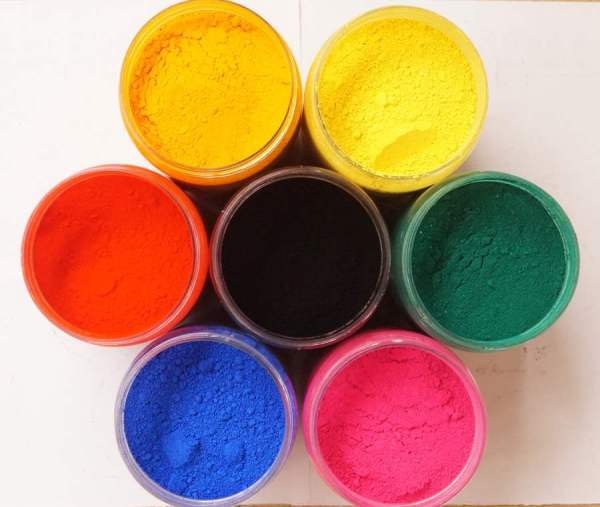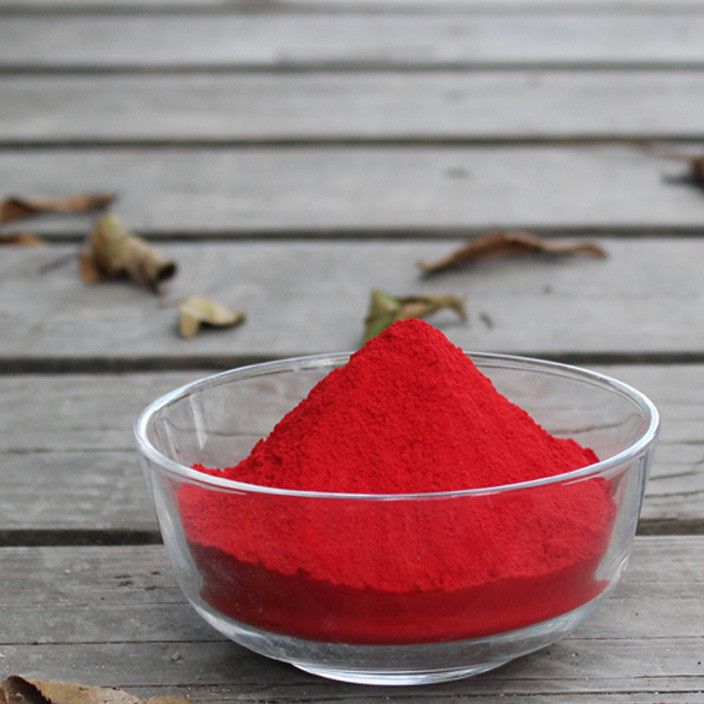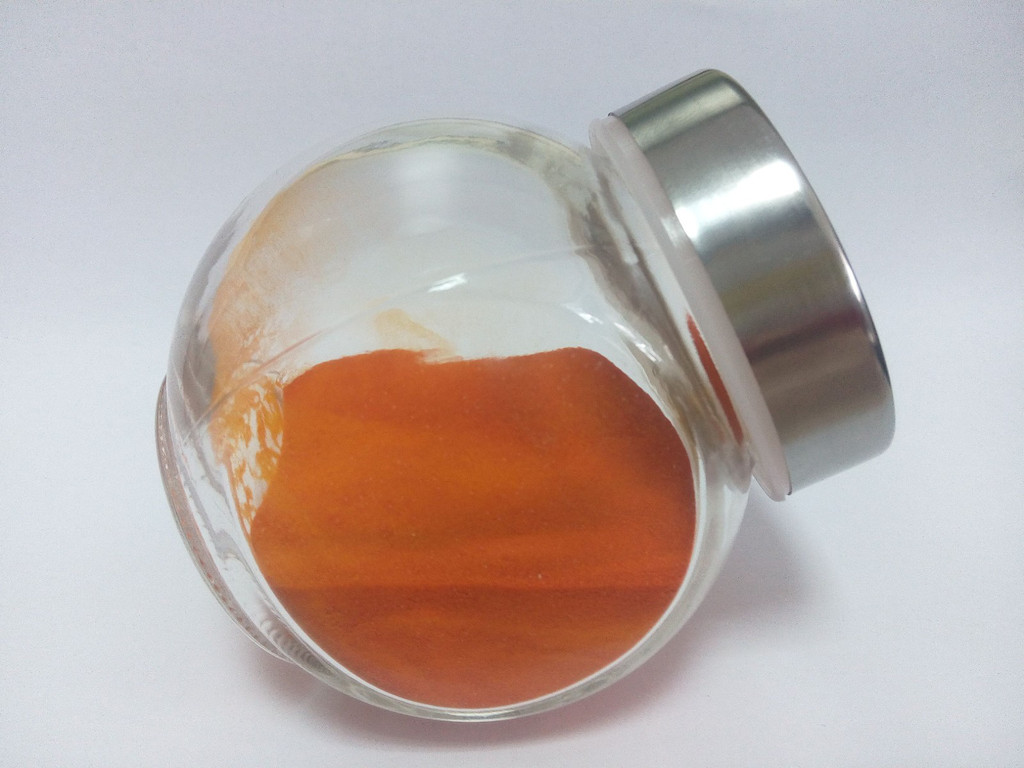Plastic colorantIf combined with antioxidant Improper combination of agents and light stabilizers can cause premature fading or discoloration of colored plastic products, and can also accelerate the light and oxygen aging of colored plastic products, deteriorating the appearance and physical and mechanical properties of the products, and losing their original functions and properties in advance. Use value.
Colorants have antioxidant and light stabilizer effects Impact
1 Effect of colorants on antioxidant performance
Chrome yellow is an opaque inorganic colorant that can be used for thermoplastics such as polyolefin, polystyrene, acrylic resin, etc. It has strong tinting power, good hiding properties, and excellent water and solvent resistance. However, because chrome yellow is a lead-containing compound composed of lead chromate or basic lead chromate and lead sulfate, it is combined with sulfur-containing antioxidantsDLTP, DSTP, 1035, 300, etc. are shared. Under the high temperature conditions of plastic processing, chemical reactions will occur to generate black lead sulfide, which affects the appearance of plastic products and greatly weakens the anti-thermal oxidative aging effect of antioxidants. Therefore, chromium-containing colorants cannot be used with sulfur-containing antioxidants.
In colored polypropylene, certain colorants will interact with low molecular weight Hindered phenol antioxidants undergo chemical reactions that weaken the antioxidant effect.

The thermal effects of colorants on polypropylene containing phenolic antioxidants The effects of oxygen stability can be divided into three categories:
Severe impact: channel carbon black, monoazo red3B, quinacridone magenta, phthalocyanine blue, iron oxide yellow brown;
Medium Impact: Phthalocyanine Green, Furnace Black, Ultramarine Blue, Chrome oxide green;
Slightly affected: cadmium yellow, (sulfide) mercury cadmium red, Rutile titanium dioxide.
Carbon black is the largest black colorant that can be used in a variety of plastic materials and products. It can also be used as a light stabilizer for plastic materials. In addition to weakening the effectiveness of some phenolic antioxidants in polypropylene, carbon black can also be used with antioxidantsBHT occurs, causing BHT to almost completely lose its effectiveness. At the same time, the light stabilizing effect of carbon black itself is also greatly weakened.
Added1% channel carbon black and the outdoor exposure life of low-pressure polyethylene flakes are only added with 1% channel carbon black The outdoor exposure life of low-pressure polyethylene sheets is about 40%. For plastic materials such as polyethylene and polypropylene, when using carbon black as a colorant or light stabilizer, appropriate antioxidants must be selected. Otherwise, it will not only reduce the effectiveness of antioxidants, but also reduce the outdoor light stability of colored plastic products.

<span style="font-family: MicrosoftThe production of colored plastic products using masterbatch is a method widely used in the plastic product production industry.
Generally speaking, the carrier resin used in the production of masterbatch is more commonly used The base resin used in the production of products has a low molar mass and a high melt mass flow rate. The carrier resin needs to be heated for the first time during the production of color masterbatch. When it is heated and extruded again during the production of plastic products, the carrier resin first undergoes thermal degradation and mechanical degradation, thereby accelerating the aging process of colored plastic products. Although the carrier resin in the color masterbatch accounts for a small proportion of the colored plastic products, it has been thermally oxidized after being heated for two or more times. Therefore, antioxidants must be added when producing color masterbatch and using color masterbatch to produce colored plastic products.
Thermal oxygen aging function is the basic function of anti-aging of general plastic materials , the anti-photoaging function is an improved function based on the basic functions. To enhance the light stability of colored plastic products, we must first enhance the thermal oxygen stability of colored plastic products. Adding an appropriate and appropriate amount of antioxidants to some plastic products colored with ultraviolet absorbing pigments can double the light stability of the products.

Antioxidants and UV-absorbing pigments in high-pressure polyethylene Synergy in
When chrome yellow or iron oxide red is used together with antioxidant 2246, the light stability of high-pressure polyethylene is increased by more than three times. The essential role of antioxidant 2246 in this test is to enhance the thermal oxygen stability of high-pressure polyethylene, and the objective performance or result is to enhance the light stability of high-pressure polyethylene.
The role of light stabilizers
Ultraviolet absorbing light stabilizers are commonly known as ultraviolet absorbers. Agents are divided into benzophenones and benzotriazoles based on different molecular structures. This type of light stabilizer uses its own molecular structure to convert the light energy irradiated onto colored plastic products into heat energy, preventing the molecular structure of the colorant (such as the conjugated double bond chromophore of organic colorants) from being destroyed by light energy, and Avoid photooxidation of plastic materials. UV absorbers are light stabilizers that can directly protect colorants and the appearance of colored plastic products.
Most colorants, especially inorganic pigments type of colorants, when used alone in plastic products, can provide a certain degree of light stabilization. For colored plastic products used outdoors for a long time, colorants alone cannot be used to improve the light stability of the products. Only by using light stabilizers can we effectively inhibit or slow down the photoaging of colored plastic products for a long time and significantly improve the light stability of colored plastic products.
Hindered amine light stabilizers (HALS) are a type of organic amine compounds with steric hindrance effect. They have the ability to decompose hydroperoxides, The quenching group can quench oxygen, capture free radicals, and the effective group can be recycled and regenerated. It is a plastic light stabilizer with high anti-photoaging effect and the largest dosage at home and abroad.
For the use of photoactive and photosensitive colorants (such as cadmium yellow, For plastic products colored without core rutile, considering the catalytic photoaging effect of the colorant, the amount of light stabilizer added should be increased accordingly.
Recycled polypropylene crate material embrittlement data
Colorants are used in the production of colored plastic products , antioxidants, light stabilizers and when determining the addition amount, the effect of colorants on the effectiveness of antioxidants and light stabilizers needs to be considered. It is necessary to conduct experiments to determine the impact and coordination effect of the three on the color and anti-aging stability of the product.
For the combination or combination of colorants, antioxidants, and light stabilizers determined through testing or actual application System, when the basic resin, processing technology and conditions of colored plastic products, the shape of the product and the use environment remain unchanged, the variety of antioxidants and light stabilizers changes, or the color, variety, dispersion, quality, amount of colorants, etc. Even a small change may cause major quality problems in colored plastic products.
��;”>
Colorants are used in the production of colored plastic products , antioxidants, light stabilizers and when determining the addition amount, the effect of colorants on the effectiveness of antioxidants and light stabilizers needs to be considered. It is necessary to conduct experiments to determine the impact and coordination effect of the three on the color and anti-aging stability of the product.
For the combination or combination of colorants, antioxidants, and light stabilizers determined through testing or actual application System, when the basic resin, processing technology and conditions of colored plastic products, the shape of the product and the use environment remain unchanged, the variety of antioxidants and light stabilizers changes, or the color, variety, dispersion, quality, amount of colorants, etc. Even a small change may cause major quality problems in colored plastic products.

 微信扫一扫打赏
微信扫一扫打赏

